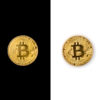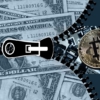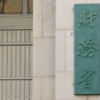[海外記事] ビットコインはまだ通貨になっていない貨幣
今回の記事は時事ネタではなく貨幣論である。ビットコインはお金なのか?お金だとしたら普通のお金とどう違うのか?そうした本質論をわかりやすく論じている。大事な議論だと思うので少々長いが全文訳出した。
なお本記事においては貨幣(money)と通貨(currency)の区別が重要となる。貨幣はみんなに使われてなんぼの存在である。
出典は以下の記事。
いい加減認めない?ビットコインはお金なんだってば
第1部:ビットコインは貨幣なのか?
金融エリートの冷笑
Now, pretend you are in Davos sitting among the world’s financial elite. You face a panel made of renowned central bankers. You slowly raise your hand and ask the million dollar question:
“Can anyone tell me what Bitcoin is?”.
After a moment of stunned silence, the whole audience roars with laughter. As the laughter subsides, the “masters of the universe of debt”, will start the usual tirade: it´s a fraud (J.Dimon), don’t know …but it will end badly (W. Buffett), it´s only a speculative bubble (R. Dalio), it´s a Ponzi scheme, it´s backed up by nothing, it´s nothing at all… and so on.
So what is Bitcoin?
あなたはダボスでパネル会議に出席している。世界の金融エリートに対面して坐っているところだ。著名な中銀幹部が居並ぶパネルで、おもむろに手を上げ、ズバッと本質に切り込む。
「どなたか、ビットコインが何か教えていただけませんか?」
虚を突かれた面々。一瞬の沈黙の後、会場を笑いが包む。笑いが引いていったところで「借金宇宙のご主人たち」はいつもの長広舌に戻る。ダイモン氏いわく「詐欺だ」。バフェット氏いわく「わからない…でもひどい終わり方をすると思います」。ダリオ氏いわく「あれは投機的バブルそのもの」。他にも「ねずみ講そのもの」、「何の裏付けもない」、「まったく何物でもない」、散々な言われよう。
じゃあ、いったいビットコインって何なのか?
規制当局の意見を聞いてみよう
The Position of the Regulators
On January 8th, the Bank of Israel was the last Central Bank to issue a press release trying to define what Bitcoin is or ―better― what it is not. Here they go, “Bitcoin and similar virtual currencies are not a currency, and are not considered foreign currency and should be viewed as a financial asset”.
For the State of New York, Bitcoin is a “digital unit that is used as a medium of exchange or a form of digitally stored value“.
For the German BaFin it is a “unit of account” and therefore a “financial instrument”.
More comprehensive definitions have been attempted by the EBA in 2014 (European Banking Association) and the Banca d´Italia, which both define Bitcoin as “a digital representation of value that is neither issued by a central bank or public authority nor necessarily attached to a fiat currency, but is used by natural or legal persons as a means of exchange and can be transferred, stored or traded electronically”.
Quite to the contrary, the Bank of England and the English FCA have not taken a position yet. In fact, the FCA has gone as far as to state that it does not regulate digital currencies and has no intention of doing so.
2018年1月8日、イスラエル銀行は中央銀行として最後に、ビットコインが何であるのかの(より正確には、何でないのかの)定義をプレスリリースとして公表した。いわく「ビットコインをはじめとする仮想通貨は通貨ではなく、外貨とも見なされない。仮想通貨は金融資産と見なされるべきである」。
ニューヨーク州によれば、ビットコインとは「デジタルな交換媒体の単位、もしくはデジタルな価値保存の単位」である。
ドイツ連邦金融監督庁の見解では、ビットコインは「計算単位」であり、したがって「金融商品の一種」である。
2014年、欧州銀行協会(EBA)とBanca d’Italiaがそれぞれ公表した包括的定義では、ビットコインは「価値をデジタルで表現したものであって、中央銀行や金融監督官庁が発行せず、法定通貨には該当しない。しかし自然人または法人が交換手段として使用し、電子的に送受金、保管、もしくは売買することのできるもの」とされている。
以上の面々と好対照なのがイングランド銀行と英国の金融行為規制機構(FCA)だ。彼らはまだ公式見解を発表していない。ただFCAはデジタル通貨を規制しておらず、将来規制する意思もないというところまでは踏み込んで発言している。
歴史のなかの貨幣と通貨
Money and Currency in History
Let’s see then how monetary history defines both currency and money. Money first.
In history, there have been many forms of money, but just looking at modern times, one can identify essentially two forms of money: representative commodity money and fiat money. Throughout history gold and silver, as commodity money, have been the purest form of money. Because they have an intrinsic-use value and they cannot be debased.
At the beginning of the 1900s, with the gold standard, commodity money became “representative commodity money” which was fiat money backed up and redeemable for gold.
Our current system instead is based solely on fiat money (from the Latin, fiat ― let it be)― which has no intrinsic value and is irredeemable ― and whose value is sanctioned by the government which makes it legal tender within a country.
Money must have some essential properties, such as being (i) a medium of exchange, (ii) a unit of account and (iii) a store of value. Money must also be fungible, portable, durable and cognizable.
貨幣とは何か
有史上、様々な形態の貨幣が使われてきた。現代のみに限定すると、基本的には2種類の貨幣がある。表象的な商品貨幣とフィアットマネーである。金融史全体を通じて、最も純粋な貨幣形態は商品貨幣としての金と銀であった。金と銀には本源的な使用価値があり、それ自体の価値は劣化しないからである。
1900年代の初め、金本位制が実施されると、金自体が商品貨幣として使われることはなくなり、その代り「金の価値を表象する」(金によって担保され、金と交換可能な)法定通貨が使われるようになった。
実物担保の商品貨幣から法律担保のフィアットマネーへ
現行の通貨システムは、本源価値がなく兌換不能なフィアットマネー(語源はラテン語fiat)のみを採用している。フィアットマネーは各国政府が国内においてそれを法定通貨と認めるがゆえに通用する貨幣である。
これらの貨幣は、貨幣がもたねばならない性質を兼ね備えているから貨幣である。その性質とは(i)交換媒体、(ii)計算単位、(iii)価値保存の3つである。この性質以外にも、貨幣は、相互交換性(ある100円を他の100円と交換できる)、可搬性(持ち運びできる)、耐久性(永年の継続使用に耐える)、認識可能性(誰もが認識しやすい)の諸条件を同時に満たす必要がある。
貨幣担保についての補足
貨幣が通貨になるとき
When a money circulates within an economic system and is accepted as a means of payment―through banknotes and coins―then it is also a currency (from Latin currens-entis ― in circulation). Which is essentially “a generally accepted system of money which circulates within an economic system”. Therefore you can have a money which is also a currency and moneys that are not currencies.
For example, the moneys par excellence ― gold and silver ― have been also currencies throughout history until Bretton Woods. Today, one can argue that they are not a currency anymore, but still they remain the purest form of money. Although, to be precise, some gold coins are still today legal tender at face value in the US and therefore still a currency. In 1912 J.P.Morgan, when called to testify before the US Congress, said his famous words: “Gold is money, everything else is credit”.
貨幣が経済システム内で流通し、紙幣や硬貨のかたちで支払い手段として認めれるとき、貨幣は通貨となる(これも語源はラテン語のcurrens-entis。英語では”in circulation“、日本語では「流通している」)。通貨とはつまり「一般に受け入れられ、経済システム内で流通している貨幣のシステム」のことだ。そのため、定義上は貨幣の条件を満たす貨幣であっても、通貨と認められている貨幣とそうでない貨幣が存在するのである。
金本位の停止
例えば、ブレトンウッズ会議(1944年)以前まで金と銀は歴史上ずば抜けて優秀な貨幣であった。今日、金と銀はもはや通貨ではないという議論もある。しかし両者が最も純然たる貨幣である事実に変わりはない。正確に言うなら、一部の金貨はいまも額面価格で米ドルと交換可能な法定通貨であり続けている。 1912年、議会証言の証言席に座ったJ.P.モルガンは放った有名な言葉の通り「金は貨幣。それ以外はすべて信用」なのである。
On the other side, you have all the fiat moneys of the last 4 centuries ― the Dutch gulden, the Spanish real and the British pound ― which were both money as well as reserve currencies at that time and whose value collapsed to zero and do not exist anymore today as forms of money.
反対にフィアットマネーの命は儚い。過去4世紀に登場したオランダのグルデンも、スペインのレアルもイギリスのポンドも、往時は基軸通貨にまで上りつめた貨幣であったが、その後、額面価値はゼロとなり、今日、貨幣の一形態としては存続していない。
第2部:ビットコインは通貨たりえるか?
ビットコインは貨幣の諸条件を満たしている
Bitcoin´s Money Features
So let’s see how Bitcoin fits in this framework:
- as recognized by the EBA, Bitcoin has the features of money, such as being a unit of account and a medium of exchange. The only doubts are for the store of value and the stability features, more difficult to attribute to Bitcoin given its high volatility.
However, one can argue that the same feature can be hardly attributed to any of our fiat moneys, considering our central bank policies´ of debasement and monetary inflation.
As evidence suffice to look at a graph of the US dollar vs. gold from 1970 to date, to comprehend that the US dollar is not a store of value (1). Bitcoin´s volatility is also a function of its lack of liquidity, small market, lack of regulation and young age. All those issues will be fixed with time.- Bitcoin is clearly fungible, portable, durable and cognizable, like money should be.
- Bitcoin is not however commodity money nor fiat money. But the historical definition of money cannot be kept immutable in the face of technological advancements. Clearly, a digital form of money is nowadays recognized.
However, if one can easily accept all forms of digital money which are either derived from fiat or derived from commodities, with regard to Bitcoin one must go a step further.
Indeed, before Bitcoin no form of money was built solely upon “trust”. Yes, because what stands behind Bitcoin is not a government nor a commodity with intrinsic value. Therefore Bitcoin relies solely upon the trust that users, investors, miners and consumers put into it. For that reason, it is very important to analyze what “trust” means.
ビットコインがどの程度、貨幣の諸条件を満たしているか確認してみよう。
- 欧州銀行協会も認めるように、ビットコインは「計算単位(尺度)」「交換手段(決済)」など貨幣の基本機能を有している。唯一の疑問点は「価値保存」機能にある。値段の乱高下で価値が安定しないので安定性が疑問視されているのだ。
それでは中央銀行の行っている通貨価値を毀損させる金融インフレ政策が、法定通貨の価値を安定させているだろうか? 1970年代から今日までの米ドルvs金のチャートを見れば、米ドルが価値保存に向いていないことは一目瞭然だ(47年間で金の価値は$36から$1330へ上昇)。ビットコイン価格のボラティリティは、流動性の低さ、市場規模の小ささ、規制の欠如、歴史の浅さの反映であり、時間の経過とともに修正されていく性質のものだ。 - 相互互換性、可搬性、耐久性、認識可能性の条件は明らかにすべて満たしている。
- ビットコインは商品貨幣にもフィアットマネーにも当てはまらない。しかしテクノロジーの急速な発展に伴い、貨幣の歴史的定義も変わらざるを得ないのだ。デジタル形式の貨幣が社会に浸透しつつあるのは明白である。
「信頼」のみで成立している貨幣
フィアット由来だろうが商品由来だろうが、誰もが違和感なくデジタル貨幣を受け入れる素地は出来ている。だがビットコインにはまだ乗り越えるべきステップがある。
というのも「信頼」のみに基づく貨幣など、ビットコインが人類史上初めてなのである。ビットコインには政府のお墨付きも、本源価値を有する商品の裏付けもない。ユーザー、投資家、マイナー、消費者の、ビットコインへの「信頼」のみがビットコインを支えているのだ。だから、この「信頼」の意味をちゃんと紐解くことはビットコインの未来にとってとても大事だ。
貨幣への信頼とは何か
The Trust in Money
We have two forms of trust in money: objective or intrinsic trust and subjective or extrinsic trust. The former is the form of trust that one has in commodity money. One trusts that mother nature has made gold scarce enough and costly to extract as to ensure a limited supply. One trusts its scarcity, objectively. This form of trust is intrinsic in precious metals´ nature.
Then you have the form of trust in fiat moneys, which is subjective, is extrinsic, meaning that you have to trust groups of individuals or societies ― such as governments or authorities such as central bankers ― to act in a way that does not jeopardize the governments´ finances and its fiat money.
The Bank of England for instance, clarifies that the trust in the fiat GBP is instilled by (i) measures to avoid counterfeiting and (ii) low monetary inflation… Simply put, you trust that the government will not abuse the printing presses and ―in short― will be able to pay its debts and remain solvent.
If this type of “government instilled trust” is what solely backs up fiat moneys, do then people have more reasons to trust their governments (i.e. fiat money) or a mathematical algorithm (i.e. Bitcoin)?
The question is by no means a small one.
実体を担保にする商品貨幣と法律を担保にするフィアットマネー
貨幣への信頼には、客観的(本源的)信頼と主観的(非本源的)信頼の2種類がある。前者は商品貨幣の裏付けとなる金や銀に対する信頼を根拠にしている。金は、母なる自然が稀少な資源として作り、掘り出すには多大なコストがかかる。その稀少性は客観的なもので動かしがたいから本源的な信頼につながる。貴金属には自然の与えた価値が内在しているからである。
それに対して、フィアットマネーへの信頼は主観的かつ非本源的な信頼だ。人々は無言のうちに、特定の個人や社会を信頼していることになる。もし政府や中央銀行が、国家財政を破たんさせず、通貨自体を崩壊させないと信じられなければ、フィアットマネーは立ち行かない。
例えば、イングランド銀行によれば、フィアットとしてのポンド通貨への信頼は、(i)偽造の回避措置と(ii)金融的な低インフレ性によって定着すると明言している。簡単にいえば、政府がみだりにカネを刷りまくらず、然るべき債務返済能力を保持していることが信頼の実態である。
このような「政府が浸透させた信頼」のみがフィアットマネーの担保になっているなら、当然、人々は信頼の合理的な根拠を探すことになる。政府(フィアットマネー)と数学アルゴリズム(ビットコイン)のどちらがより信頼に値するのか、と。
この問題は決して小さいものではない。
One can hardly refute that an objective-intrinsic form of trust is far superior to a subjective-extrinsic trust. The latter can only be rated according to its historical record.
Unfortunately, the historical record of fiat moneys is pretty poor. The answer is yet again in Cicero’s magistra vitae. Because history proves ultimately that, when humans have incentives ― such as governments, politicians and the financial elites have in creating new money ― they will always behave accordingly.
The result is that no fiat currency in history has ever survived its inevitable debasement. There will always be another Roosevelt, another Nixon, more LTCM´s, more Lehman, more bailouts, more QE… Let’s not forget that this form of “subjective” trust can be easily lost and when that has happened in history, the results have been the collapses of past empires ― or in modern times ― the hyperinflations of the Weimar Republic, Argentina, Zimbabwe or Venezuela.
主観的で非本源的な貨幣への信頼はたやすく揺らぐ
主観的で非本源的な信頼に比べて、客観的で本源的な信頼がはるかにすぐれている点についてはほぼ異論がないだろう。主観的で非本源的な信頼は、歴史記録のみに照らして評価すべきだが、あいにくフィアットマネーの歴史が示すところは悲惨である。
ローマの哲人キケロのごとく「歴史は人生の教師」というしかない。歴史の示すところでは、利害を共有する者はその利害に基づき行動する―、最終的には利害が人を動かすのである。政治家などの為政者、金融エリートにとって貨幣の増発こそ共通の利益だから、法定通貨は例外なく価値を毀損するのである。彼らは懲りずにルーズベルトやニクソンと同じことをし、ふたたびLTCMやリーマンを生み、その都度QEを繰り返すのだ。
主観的な信頼は容易に失われるというのが歴史の教訓だ。貨幣への信頼が崩れ去って数多の帝国は崩壊した。近い時代でもワイマール共和国が倒れ、アルゼンチン、ジンバブエ、ベネズエラがハイパーインフレに襲われた。
That is the fundamental reason why a mathematical algorithm ― which ensures no duplication and double-spending as well as security and transparency in a distributed ledger ― is intrinsically objectively trustworthy, while States and their fiat currencies are not. And that is a huge argument in favour of Bitcoin.
If one agrees on this key issue of “trust”, then a digital money like Bitcoin is not only money but it is superior to any fiat money. More recently also Goldman Sachs has changed its opinion and now agrees that Bitcoin is money.
人為に惑わされない数学アルゴリズムの方が信頼に足る
政府より数学アルゴリズムが信頼できるのは、以上のような理由による。数学アルゴリズムはデータの重複や二重支出を防ぎ、分散台帳の安全と透明性が保証することができる。よほど本源的かつ客観的な信頼に値するのだ。国と国の発行する通貨にはそのような能力はなく、ビットコインの普及に向けて強力な追い風となる論点だろう。
この「信頼」という重要な論点について合意されるなら、ビットコインなどのデジタル貨幣は、単なる新しい貨幣である段階から、どんなフィアットマネーより優れた通貨に発展しうるのである。最近ゴールドマン・サックスは従来の意見を変更し、ビットコインが貨幣であると認めている。
ビットコインはこれから通貨になる貨幣
Not Yet a Currency
If Bitcoin is in no doubt money, can it be also considered a currency? Not yet. But it may well become a currency in the future, depending on how much Bitcoin will evolve into a generally accepted system of money within the global economic system.
For instance the Ether (ETH), it is not only money just like Bitcoin is, but it is also for all purposes a currency today. For it is in no doubt a generally accepted system of money payments within the Ethereum community. Therefore, it performs both the functions of a (digital) money and of a (private) currency.
Bitcoin however ― unlike the ETH for the Ethereum community ― does not perform a “utility” function within a closed system and for this reason it must be more widely used in the global economy before being considered a (global) currency.
以上論じてきたように、ビットコインは紛うことなく貨幣である。では通貨なのか?まだ通貨ではないと言うしかない。しかし通貨になる可能性は高い。ビットコインの未来は、この新たな貨幣システムが、どれだけ世界経済システムに浸透し、一般に受け入れられるかにかかっている。
イーサリアムのイーサ(Ether、ETH)を例にとろう。イーサはビットコインと同様に間違いなく貨幣だが、現在イーサリアムコミュニティ内で受け入れられ、その範囲おいてはすでに通貨である。イーサはデジタル貨幣として貨幣の機能を果たし、プライベート通貨として通貨の役割を果たしているのである。
しかし、イーサのような意味でのコミュニティ内を持たないビットコインはまだ公共のユーティリティとして通貨の役割を果たしていない。世界経済でもっと広く利用されるようにならないと、グローバルな通貨と見なされないだろう。
結論
Conclusions
So, if defining Bitcoin as money seems after all quite a straightforward exercise, why (almost) no one says that?
The likely reasons are both political and economical, with geo-political implications which are closely connected with the “trust” in fiat money. Indeed, recognizing that Bitcoin is money (superior to fiat) and that it may become an alternative global digital currency in the future, may well pose a threat to the current financial system based on infinite credit creation and money debasement.
The one who recognizes that is Christine Lagarde of the IMF, who is said “not to dismiss lightly crypto currencies like Bitcoin because they could give government-backed cash and monetary policy a “run for their money” in the future”. More recently also Rodgin Cohen, the Senior Chairman of the giant Law Firm Sullivan & Cromwell, said more or less the same on Bloomberg TV, “crypto currencies may well in the future pose a direct threat to the Fed and other central bank policies´, as well as to the reserve status of the US dollar globally”.
One cannot agree more with that.
<引用記事終わり>
以上論じたように、ビットコインは素直に貨幣だといって差し支えない存在である。それなのにビットコインを貨幣だという人がほとんどいない。どうしたわけか?
おそらく政治経済的な理由によるのである。フィアットマネーへの「信頼」は地政学な力関係を反映しているからだ。将来、ビットコインが法定通貨よりすぐれた貨幣だと認識され、法定通貨と並ぶ世界的なデジタル通貨になる日が来るかもしれない。無限の信用創造による通貨価値の毀損に依存せざるを得ない既成の金融システムにとって、この代替可能性だけで脅威に映るだろう。
IMFのラガルド専務理事はこの点をよく承知しており、「ビットコインはじめ仮想通貨を軽く見ない方がよい。政府保証のキャッシュや金融政策と互角の勝負をしないとも限らない」といったと伝えられる。大手法律事務所サリバン・アンド・クロムウェルのロディン・コーエン会長も、最近ブルームバーグTVで同様の趣旨の発言をした。いわく、「将来、仮想通貨は米連銀や他の中央銀行の政策に直接的な脅威になる可能性がある。その場合、米ドルの世界基軸通貨の地位も安泰とはいえないだろう」。
まったく賛成というしかない。
まとめ
- 貨幣は交換手段、計算単位、価値保存の基本機能に加え、相互交換性、可搬性、耐久性、認識可能性を備えるものをいう。貨幣が実際に社会で広く使われているとき、通貨と呼ぶ。
- 貨幣は、その価値担保の違いによって商品貨幣とフィアットマネーに大別できる。前者は金や銀など歴史的に価値を認められてきた貴金属を担保とするのに対し、後者は非実体的な、法律に規定された政府の買戻し保証を根拠とする。
- ビットコインを筆頭とする仮想通貨は商品貨幣でもフィアットマネーでもない。ブロックチェーンと呼ばれる、偽造防止やセキュリティ保証の技術が組み込まれた分散台帳テクノロジーを価値担保とする貨幣である。ブロックチェーンは恣意的な通貨操作を排除しているため、既成の金融システムに比べ、より公平かつ透明性が高い。このようなブロックチェーンへの信頼が仮想通貨を支えている。
- 現在、商品貨幣は廃止され、フィアットマネー全盛になっているが、フィアットマネーを制御するはずの政府や中央銀行は通貨増発による貨幣価値の毀損によってしか経済危機に対応できない。そのため、過去のフィアットマネーはことごとく短命に終わっている。かつて基軸通貨と呼ばれた通貨もその例外ではなく、米ドルに代わる長期的に存続しうる新たな通貨が求められている。
- 仮想通貨にはフィアットマネーの欠陥を克服できる可能性がある。仮想通貨は上述の貨幣に求められる諸条件を満たしているゆえに貨幣であるが、現段階では、一部に流通するのみで通貨としての地位を確立していない。
- 仮想通貨の未来は社会がそれを受け入れるかどうかにかかっている。








ディスカッション
コメント一覧
まだ、コメントがありません